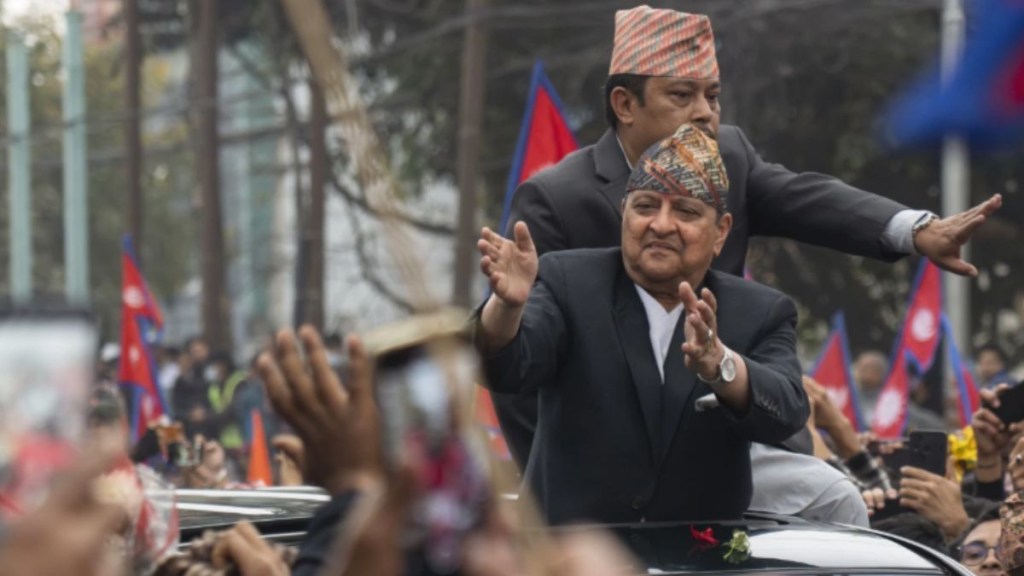Former Nepal King Gyanendra Shah’s passport was seized by the Himalayan country’s government as he’s been accused of spurring pro-monarchy protests in Kathmandu. Although the temporary curfews were lifted amid the political stir, Gyanendra Shah’s statement is believed to have been instrumental in fuelling protests that seek to reinstate monarchy and Nepal’s Hindu nation status.
According to media reports and the former king’s address circulating online, Shah called upcall upon Nepalis to protect their nation, maintain national unity and strive for prosperity. While emphasising the need to preserve
Nepal’s cultural heritage, he indirectly spoke up against the current government. Pro-monarchy supporters have since welcomed his claims, believing that politics has troubled the country’s state.
Ultimately, the pro-monarchy protests launched in the Nepalese capital resulted in vandalism. Damage caused to public property, in turn, reeled in severe action against Shah. Kathmandu Metropolitan City’s (KMC) Mayor Balendra Shah has since sent a letter to the former king’s Nirmala Niwas residence at Mahargunj. The formal notice asked him to pay Nepali Rupees 7,93,002 as compensation.
Gyanendra Shah controversies: Loktantra against centuries-long monarchy
In 2006, Nepal officially left its centuries-long constitutional monarchy days in the past after King Gyanendra Shah imposed an emergency, placing political leaders under house arrest and jailing journalists. Consequently, pro-democracy demonstrations erupted in the streets. These public protests boiled down to major bloodshed and days-long agitations.
The growing commotion and violence as part of the people’s revolution (known as People Movement II) left Shah with no choice but to reinstate the House of Representatives, giving way to the Loktantra Day (Democracy Day). Nepal officially abolished monarchy in 2008. Since then, the country has has 13 governments but Nepalis’ frustrations with the republic have only mounted over the years. Widespread corruption and a struggling economy have contributed to political instability.
Earlier this month, thousands took to streets, chanting, “Vacate the royal palace for the king. Come back king, save the country. Long live our beloved king. We want monarchy.” They now believe that reinstatement of the former king will bring in the political change they desperately need.
Gyanendra Shah has previously been accused of plotting his Nepalese royal massacre
In addition to fuelling the unrest surrounding pro-monarchy views, Gyanendra Shah is believed to have played a key role in the Nepalese royal massacre of his elder brother King Birendra Shah’s family.
The shockingly savage killings took place on June 1, 2001, at the Narayanhiti Palace, then then-residence of Nepali monarchy. An investigation eventually found King Birendra’s family was assassinated by his own elder son or Gyanendra’s nephew Crown Prince Dipendra, who killed himself just days after carrying out the royal massacre.
After his self-inflicted death, Gyanendra Shah assumed the throne in 2002. In 2005, he seized absolute power and disbanded the parliament and government.
Conspiracies and rumours repeatedly fell back on Gyanendra colluding with his son Paras to plot the royal killings and frame Dipendra to assume an easy route to the throne. However, they have vehemently denied such allegations.

